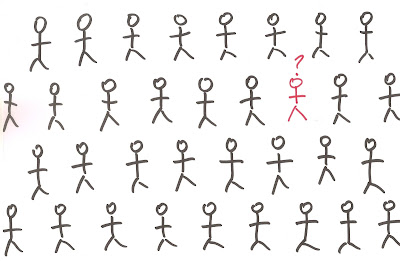The Purpose of Education
At a recent meeting at my daughter’s school involving
representatives of the teaching staff, the school’s council and some parents, I
was struck by the school’s determination to offer a program that encouraged its
pupils to be both creative and remarkable.
This school is one of many who are questioning the role of education and
aligning themselves to 21st century needs.
This is a necessary endeavor and one that all schools should
be undertaking and it has led me to question what schooling is actually for,
and the needs of society schools should be addressing. There is, I think, a disjoint between what
schools have traditionally offered and the needs of society.
|
Education produces adults who are:
|
Economies need adults who are:
|
|
obedient
compliant
homogenized
consumers
|
aware
independent
creative
improvisers
caring
|
19th century industrialization, which led to the
creation of universal education was based on low-cost uniformity to educate students
to a minimum standard to produce compliant workers and eager consumers. Strange
though that as consumers we increasingly demand customization and
personalization of what we purchase but don’t have the same expectations of
mass education.
In Japan there is an expression about ‘knocking down the
nail that sticks out’ – implying that uniformity is the goal. UK politicians have recently cited Japan’s
education system as one to admire and aspire to. I disagree, not because Japan’s system
doesn’t produce graduates of a high standard – it does, particularly in mathematics
and science rather than in the ‘softer’ (harder to test?) subjects – but
because in seeking uniformity, ultimately some talent gets wasted and some
young adults don’t get to follow their ‘passion’. Seth Godin, writing about marketing in his book ‘Purple Cow’ states that the
opposite of ‘remarkable’ is ‘good’. I believe
this can be applied to school graduates also – that producing remarkable adults
ought to be the goal and that ‘good’ is not good enough.
Meeting minimum standards is also not much of an
aspiration. It leads, in my opinion, to
a ‘most children left behind’ world where adults miss out on finding their true
talents and end up bored or disgruntled in the jobs they have.
To transform the system and encourage schools to strive to
produce remarkable adults we have to ask ourselves if there is a need to change
teacher education. Are we mass-producing teachers indoctrinated into teaching
for a bygone age? The answer may be yes
and no, but it is as good a place to start asking questions as any.




Comments
Post a Comment